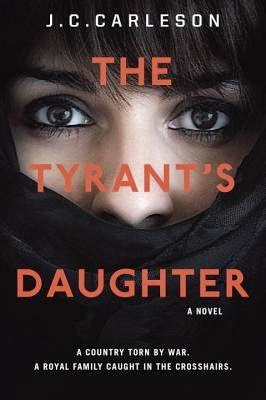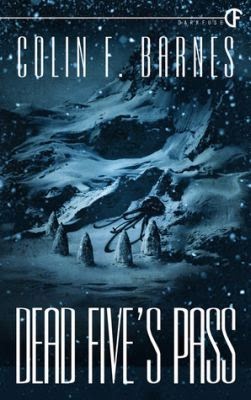 Before I start this review, Let's put out my opinion out for all to see. Then you can decide if you want to read this review. I view the story of Noah's Ark as a myth and an analogy meant to help us understand the nature of man. The Bible is not a science book. The first part of the Old Testament, especially Genesis, isn't even good history. The first person in the bible that has any historical collaboration at all is King David. It is a collection of myths and wonderful stories that established the basis for three religions. But it is not a book of science. Frankly I'm not even sure if the original authors meant for these origin stories to be taken literally.
Before I start this review, Let's put out my opinion out for all to see. Then you can decide if you want to read this review. I view the story of Noah's Ark as a myth and an analogy meant to help us understand the nature of man. The Bible is not a science book. The first part of the Old Testament, especially Genesis, isn't even good history. The first person in the bible that has any historical collaboration at all is King David. It is a collection of myths and wonderful stories that established the basis for three religions. But it is not a book of science. Frankly I'm not even sure if the original authors meant for these origin stories to be taken literally.
Are you still with me? Good.
Larry Stone's purpose in Noah: The Real Story is to explain how the story of Noah could have happened. He believes in a literal interpretation of the bible story. The author discusses most of the questions that skeptics have asked about the ark story. How did Noah get all the animals on the ark, how did he feed them, was the flood local or global, where did it land and how did the animals get to the ark or spread out, etc. Pretty much all the corners are covered. He focuses on Noah's tale specifically with only a fleeting look at the geological and geographical problems the flood presents. For a skeptic like me, I found it an interesting read if only because it presents most of the talking points that Creationists and literal interpreters of the bible will set forward. My guess is that for most readers, it will be preaching to the choir.
Yet there were very troubling issues for me, like "Why now?" This brief book (under 200 pages) feels like a cut and paste job. It feels loosely structured and a bit sloppy, like when it throws in an interview by a Great Flood expert. There is quite a bit of talk about a developing Noah's Ark amusement ark that sounds like a commercial. The overall feel is a quick, not well thought out book that is hastily done. The fact that it was published when the commercial film Noah is about to be in the theaters pretty much confirms my position. My suspicion is it was hurried for publication specifically to ride on the film's coattail.
That is uncomfortable enough, but Stones' explanation for many things just aren't very good. Many are the usual creationist explanations. For instance he explains the number of animals referred to as "kind" in the Bible as being genus rather then species. That, according to the author, would bring the amount of animals from millions to a conservative 16,000. He seems to think the ark could have been able to hold that many animals. I doubt most others would agree with him. Then there is the questions about feeding, waste disposal, and keeping the predator from eating all those cute little vegetarians for over one year. Almost all of Stone's answer are pure speculation derived from the sparseness of details found in the Bible. Any explanation, scientific or historical, that contradicts the Bible is simply ignored.
One interesting aspect is that the author will actually say to questions, like the waste disposal problem, "We don't know". I find that a bit refreshing. Yet it is a totally different type of "I don't know" from the one that scientists will say. When a scientist says I don't know he means "I don't know but some day with the right discoveries and evidence we might." Stone's I don know is "I don't know but it means God took care of it". I'm not implying this. the author actually states "It means God took care of it."
It very important that I state that I am not reviewing this poorly because I disagree with it. I enjoy reading topics I have different views of, especially religious explanations of events, when they are well done. I even find Ken Ham's website Answers in Genesis quite entertaining and once in a while, like what Bill Nye said to Ham in their debate, "I learned something". I gave this book a poor review because I did not learn anything. It does not do a good job in expressing its viewpoint and it is hastily, even sloppily, written. As a book of Christian Apologetics or a Creationist perspective. you can do a whole lot better.
There were two areas I found informative. Stone gives a nice rundown of the attempts to find Noah's Ark which, according to legend, landed on Mount Arafat...but maybe not. He is also quick to note those claims that have been correctly deemed hoaxes. I also enjoyed his brief history of how Hollywood has treated the story of Noah although he left out my two favorites: John Huston's performance as Noah in The Bible and Disney's delightful excerpt from Fantasia 2000 about Noah's Ark as seen through the eyes of Donald Duck and set to Elgar's "Pomp and Circumstance".
But that is not enough to save this book. This book easily gets my one star rating which can be translated to "Run Away! Run away!".
 The violence piles up quickly in Roger Smith's action packed yet depressingly realistic thriller Dust Devils. Set in South Africa, it tells a story full of deception, corruption, murder, revenge and pretty much everything else you might find in a thriller. The author's strength is not just that he can handle all of this and keep you on the edge of your seat but that he can also transport you into the South African culture in a way that makes you feel you are there. At the end you may be glad you are not there.
The violence piles up quickly in Roger Smith's action packed yet depressingly realistic thriller Dust Devils. Set in South Africa, it tells a story full of deception, corruption, murder, revenge and pretty much everything else you might find in a thriller. The author's strength is not just that he can handle all of this and keep you on the edge of your seat but that he can also transport you into the South African culture in a way that makes you feel you are there. At the end you may be glad you are not there.  1
1


















